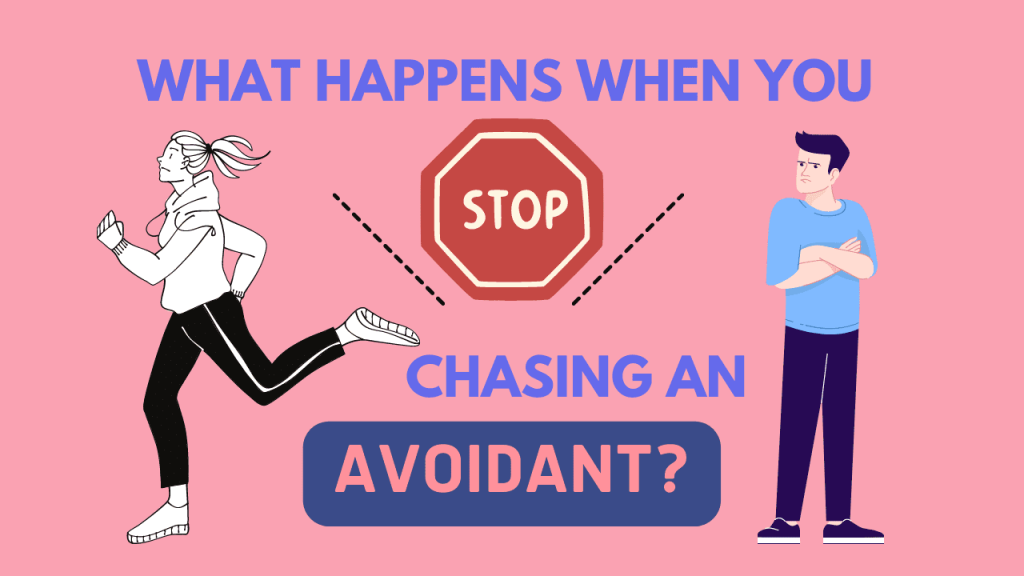Introduction
When someone with an Signs an Avoidant Is Done with You attachment style is done with a relationship, they often don’t express it openly. Instead, they withdraw emotionally, create distance, and may even push you away without a direct breakup conversation. Understanding these subtle signs can help you recognize when an avoidant partner is moving on.
In this article, we’ll explore the key signs that indicate an avoidant is done with you and what you can do about it.
1. Understanding Avoidant Attachment
Avoidant attachment is a style of relating to others that stems from a fear of dependency and emotional closeness. People with this attachment style often struggle with commitment and prefer to keep their emotions guarded. If they start feeling overwhelmed, they may shut down rather than openly express their feelings.
2. Emotional Distance Increases
One of the first signs that an avoidant is done with you is a noticeable increase in emotional distance. They may stop sharing personal details, avoid deep conversations, and seem uninterested in your life. This withdrawal is their way of creating space.
3. They Stop Making Future Plans
If your partner used to talk about trips, dates, or long-term goals and suddenly stops, this is a red flag. Avoidants tend to back away from commitments when they feel the relationship is no longer working for them.
4. Lack of Communication
Communication is essential in any relationship, but avoidants may become even more closed off when they are done. They might:
- Take longer to reply to texts
- Avoid phone calls
- Give short, uninterested responses
- Ignore your attempts to connect
5. They Become More Critical
An avoidant partner who is losing interest may start to criticize you more. Instead of resolving conflicts, they may focus on your flaws, making you feel like nothing you do is right. This behavior is a defense mechanism to justify their emotional withdrawal.
6. Intimacy and Affection Disappear
Physical affection, emotional closeness, and intimacy may fade when an avoidant is moving on. They may stop holding hands, hugging, or initiating any form of closeness. Even casual touching may become rare.
7. They Prioritize Independence
Avoidants value their independence, but when they’re done with a relationship, they take it to the extreme. They may:
- Spend more time alone or with friends
- Avoid discussing their day with you
- Start making big life decisions without including you
8. You Feel Like a Burden
If you start feeling like your presence annoys them, it’s a strong indication they are emotionally disengaging. They may act irritated when you express your emotions, making you feel like you are asking for too much.
9. Ghosting or Sudden Disappearance
Some avoidants end relationships by completely disappearing. They may ghost you without explanation, stop answering messages, and avoid all confrontation. This is their way of avoiding emotional discomfort.
10. What to Do If an Avoidant Is Pulling Away
If you notice these signs, here’s how you can handle the situation:
- Give them space – Pressuring them will only make them withdraw further.
- Communicate calmly – Express your feelings without being confrontational.
- Focus on yourself – Prioritize your own emotional well-being.
- Know when to let go – If they are not meeting your emotional needs, it may be best to move on.
11. FAQs
1. Why do avoidants pull away suddenly?
Avoidants pull away when they feel overwhelmed by emotional closeness. They fear dependence and may retreat when they sense the relationship is becoming too intimate.
2. Can an avoidant come back after pulling away?
Yes, some avoidants return after distancing themselves. However, this pattern may repeat unless both partners work on communication and emotional safety.
3. Should I chase an avoidant when they withdraw?
No, chasing an avoidant will likely make them withdraw further. Giving them space and focusing on your own well-being is usually the best approach.
4. How do I know if an avoidant is done for good?
If they completely cut off communication, show no interest in reconnecting, and make it clear they don’t want to continue, they are likely done for good.
5. Can an avoidant have a healthy relationship?
Yes, but it requires effort from both partners. Avoidants need to work on emotional openness, and their partners need to understand their need for space.
Conclusion
Recognizing the signs that an avoidant is done with you can save you from unnecessary heartache. If you see these behaviors, focus on your well-being and decide what is best for your emotional health. Healthy relationships require mutual effort, and if an avoidant is unwilling to engage, it may be time to move on.
For more visit Pure Magazine


